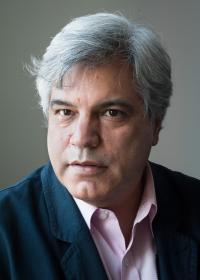Fidel Castro a Stalin byli dvě spřízněné duše

Stáhnout obrázek
Álvaro Alba se narodil 27. prosince 1963 v Matanzas na Kubě do vojenské rodiny. Ani v jeho rodině, ani ve škole se režim nijak nezpochybňoval – studenti patřili k privilegované třídě, která netrpěla žádným nedostatkem. Po studiích v Havaně odešel v roce 1980 do Sovětského svazu studovat právo, mezinárodní vztahy a historii. Po ukončení vysokoškolských studií a krátkém návratu na Kubu v roce 1988 začal v roce 1989 pracovat v Moskvě jako korespondent španělského deníku ABC. Jeho novinářská práce ho zavedla do mnoha částí Sovětského svazu, což ho i díky jeho znalostem sovětské historie a literatury přesvědčilo o nefunkčnosti komunismu. Na vlastní kůži zažil pád sovětského režimu. Dnes pracuje pro Martí Noticias a od roku 1993 žije ve Spojených státech, kam odešel do exilu v rámci programu „Exodus“ podporovaného Kubánsko-americkou národní nadací. Je ženatý a má dvě děti.
